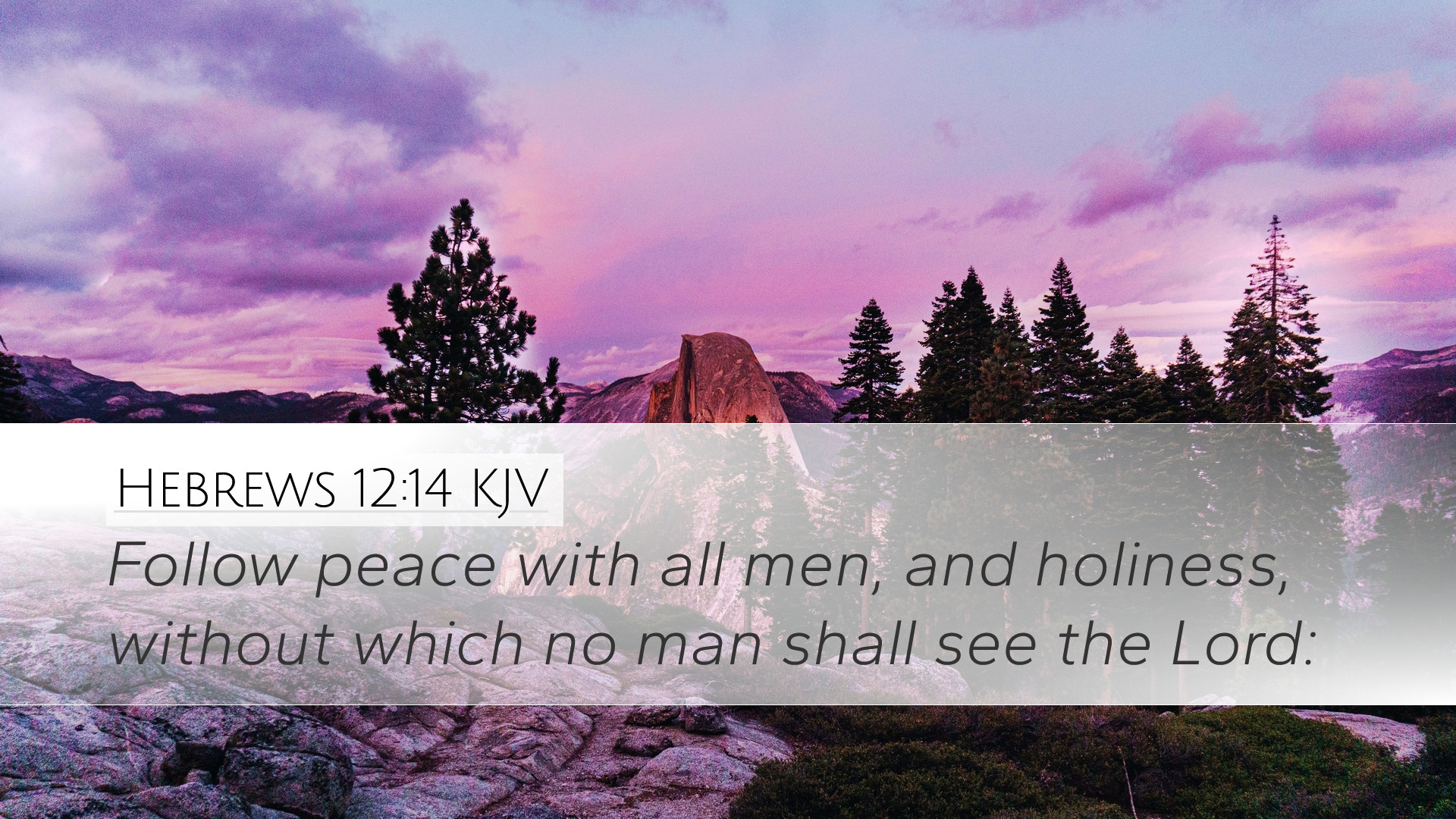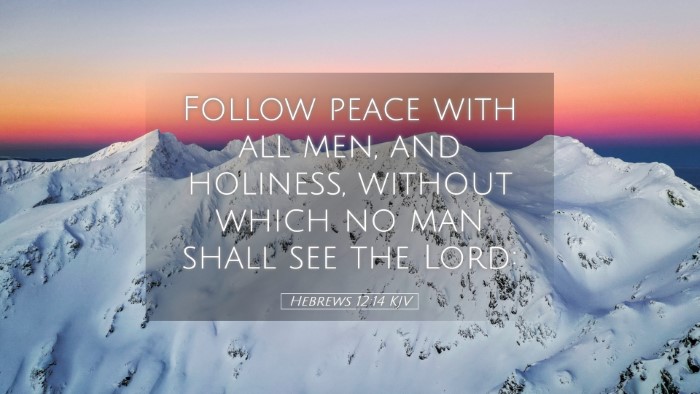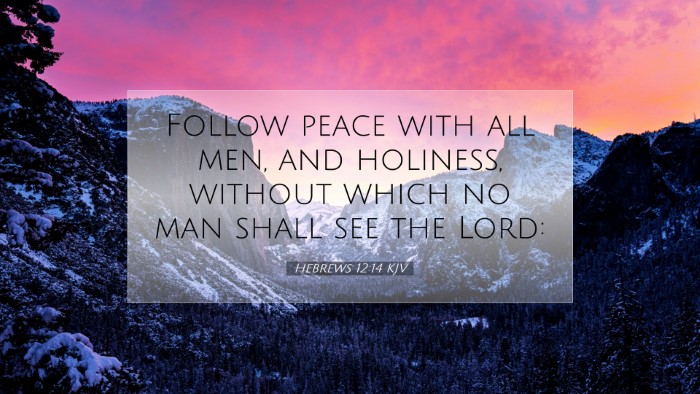Hebrews 12:14 - Bible Commentary Summary
"Follow peace with all men, and holiness, without which no man shall see the Lord." - Hebrews 12:14 (KJV)
Introduction
This verse encapsulates a vital aspect of Christian living, emphasizing the pursuit of peace and holiness. The epistle to the Hebrews, characterized by its high Christology and warnings against apostasy, now turns to practical exhortations. Here, the author provides crucial guidance for the community, urging them to embody these virtuous traits.
Exegesis of the Verse
Hebrews 12:14 serves as a theological and ethical imperative. The phrase "Follow peace with all men" emphasizes the believer’s responsibility towards others. The call to ‘follow’ suggests an active pursuit or chase after peace, indicating it requires deliberate effort.
Simultaneously, "holiness" is presented as an essential characteristic of those who wish to see the Lord. This reflects the ancient Jewish understanding that seeing God necessitates a life set apart in righteousness and purity.
Insights from Matthew Henry
Matthew Henry posits that the exhortation to pursue peace and holiness arises from the context of enduring trials. He remarks that in chasing peace, believers reflect the nature of God, who is the source of peace. Further, he emphasizes that holiness is not merely an internal matter but should manifest in the believer's relationships with others.
Henry highlights that the absence of holiness obstructs one's vision of God. He encourages believers to reflect on their lives, warning that if they prioritize worldly pleasures or conflict, they drown out the vision of the divine.
Insights from Albert Barnes
Albert Barnes echoes the call for peace, specifically noting its significance within the context of church life. He emphasizes that pursuing peace is a communal obligation; it builds unity and harmony among believers. According to Barnes, this pursuit is essential for avoiding strife which can hinder spiritual growth.
On the theme of holiness, Barnes remarks that it is not simply a state of being but an active process. He identifies holiness as an essential qualification for seeing God, emphasizing that "no man shall see the Lord" without holiness reflects a profound truth about the nature of God who is separate from sin.
Insights from Adam Clarke
Adam Clarke's commentary provides a historical and linguistic analysis of the terms used in this verse. He points out that the term "holiness" in the original Greek implies a separation unto God. Clarke argues that believers are called to be distinct from worldly influences, and this distinction is foundational for seeing the Lord and engaging in genuine worship.
Moreover, Clarke integrates the notion of holiness with the love of God, contending that true holiness arises from a heartfelt devotion to God that naturally leads to peace among believers.
Theological Implications
- Pursuit of Peace: The imperative to pursue peace indicates the need for believers to actively engage in reconciliation and foster an environment of tranquility.
- Nature of Holiness: Holiness is portrayed not as a single act but as an ongoing relationship with God that influences moral conduct.
- Seeing God: The phrase "no man shall see the Lord" speaks to the eschatological hope of believers, highlighting that a relationship with God in this life leads to communion with Him in eternity.
Practical Applications
- Conflict Resolution: Believers are encouraged to engage in peacemaking actions, resolving conflicts within families, churches, and communities.
- Personal Holiness: Each individual should examine their lives to foster a deeper relationship with Christ, recognizing the transformative power of holiness.
- Community Engagement: The church should model peace and holiness, being a light in the world that draws others to Christ.
Conclusion
Hebrews 12:14 stands as a powerful reminder of the dual call for peace and holiness in the lives of believers. As elaborated by the insights of Matthew Henry, Albert Barnes, and Adam Clarke, this verse encapsulates foundational elements for sustaining community life and personal righteousness. Engaging actively in peace and pursuing holiness are not just obligations but avenues through which believers can expect to experience and reflect the beauty of God’s holiness.


